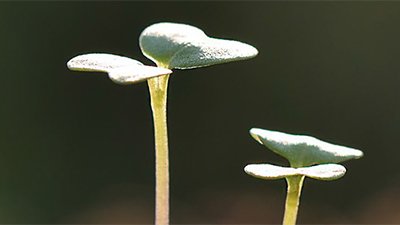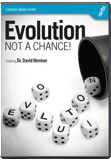Plant Sensitivity
“What’s good for the goose is good for the gooseberry.”
News Source
Does eating plants violate their “rights”? In view of recent evidence that pepper plants can “hear” sweet fennel, must a gardener take care to provide his chili-peppers with good social conditions? Can plants suffer? “Plants can warn other plants of a predator by releasing a chemical, and the warned plants can release chemicals to make themselves unpalatable to the predator,” says Australian biologist Monica Gagliano. “I think we might realize that plants are more sensitive than we think.” So must farmers look forward to a future in which they could be prosecuted for causing undue stress to the flora?
If attorney Steven Wise and author Michael Marder have their way, the future could shape up that way. Wise, representing the Nonhuman Rights Project, plans to file multiple lawsuits to secure rights for plants. So far no state acknowledges “that a nonhuman plaintiff can be a legal ‘person’ in the eyes of the law.” But while “plants’ rights” has not taken root in America, in 2008 Ecuador became the first country to guarantee constitutional rights to plants, granting nature “the right to the maintenance and regeneration of its vital cycles, structure, functions and evolutionary processes” (emphasis ours). And in Switzerland the "dignity" of plants is protected by law, rendering "forced sterilization" of plants through genetic modification illegal and even making the "decapitation of wildflowers at the roadside without rational reason" an illegal and immoral act.1
The Community Environmental Legal Defense Fund (CELDF) seeks such legal recognition of the “Rights of Nature.” Mari Margil of CELDF says, “a river may be recognized as having the right to flow, fish and other species in a river may be recognized as having the right to exist and evolve” (emphasis ours).
Michael Marder, author of Plant-Thinking: A Philosophy of Vegetal Life, calls for “plant liberation.” Though he admits that plant suffering differs in character from animal suffering, he nevertheless says, “The commendable desire to ameliorate the condition of animals, currently treated as though they were meat-generating machines, does not justify strategic argumentation in favor of the indiscriminate consumption of plants.” Therefore, he concludes, “the struggles for the emancipation of all instrumentalized living beings should be fought on a common front.”
Plants, he says, “are not aware of the world, nor are they aware of what happens to them.”
Not all agree. Rutgers University's law professor Gary Francione counters, “If plants are not sentient — if they have no subjective awareness — then they have no interests. That is, they cannot desire, or want, or prefer anything. . . . I reject completely the notion that we can have direct moral obligations to plants. I reject completely that plants have any interests whatsoever.” Animal rights advocate Tom Regan says basic moral rights belong only to those who are “aware of the world, aware of what happens to them.” Plants, he says, “are not aware of the world, nor are they aware of what happens to them.”
“Plant liberation” has its roots in a humanistic philosophy and an evolutionary interpretation of history. Evolutionists assume without proof that single-celled life randomly emerged from nonliving elements. They claim—also without any observable mechanism demonstrating how—that such a cell multiplied and acquired increasing complexity, eventually forming itself into multicellular organisms to climb the evolutionary ladder over millions and millions of years. Because all living things share this common ancestor, evolutionists sometimes argue that all life is of equivalent moral value. Ideas like “mother earth’s rights” and “plant liberation” are offshoots of this evolutionary view.
Ironically, the same worldview that promotes plants’ rights typically does not acknowledge the sanctity of human life and does not defend the right of an unborn human or a debilitated person to life. For instance, in an article favoring killing people to harvest their organs, two medical ethicists wrote, “If killing were wrong just because it is causing death or the loss of life, then the same principle would apply with the same strength to pulling weeds out of a garden. If it is not immoral to weed a garden, then life as such cannot really be sacred, and killing as such cannot be morally wrong” (emphasis ours).2
From a biblical perspective we understand this statement to be an absurd logical fallacy inconsistent with the plain reading of Scripture. Biologically, a dandelion may be considered alive. However, pulling a weed or eating spinach doesn’t cause suffering or death of any sort of life in a moral sense. The Bible uses the word nephesh in reference to the life of humans and animals but never plants. Plants were given for food in the perfectly good world God created. Yet from an evolutionary point of view, a human life would be no more important than a dandelion, perhaps less so if the human is beyond reproductive years and the dandelion hasn’t yet gone to seed.
Without a moral system based on the Word of the Creator, morality is merely a matter of human opinion. A biblical worldview recognizes our human responsibility to be good stewards of the environment and its resources, and that includes the avoidance of cruelty to animals even while recognizing that humans—not animals—are created in the image of God. However, prevention of botanical suffering or guaranteeing a plant’s “right to evolve” are humanistic constructs without basis in the created order.
The book of Genesis tells us that God created the earth to be a good place for man to live. As Creator, God gave man dominion over the earth and the job of subduing it (Genesis 1:28). This so-called “dominion mandate” calls us to a balanced view. That balanced view demands a correct view of humans, animals, and plants. Human beings, unlike animals, were created in the image of God. And edible plants were designed as food for both.
Further Reading
- Do Plants and Leaves Die?
- The Fall and the Problem of Millions of Years of Natural Evil
- The “Greenness” of God
- Flesh and Blood
- The Mystery of Life
- News to Note, April 16, 2011
- Nutcracker Man
- Chimp Rights
- Really Most Sincerely Dead
For More Information: Get Answers
Remember, if you see a news story that might merit some attention, let us know about it! (Note: if the story originates from the Associated Press, FOX News, MSNBC, the New York Times, or another major national media outlet, we will most likely have already heard about it.) And thanks to all of our readers who have submitted great news tips to us. If you didn’t catch all the latest News to Know, why not take a look to see what you’ve missed?
(Please note that links will take you directly to the source. Answers in Genesis is not responsible for content on the websites to which we refer. For more information, please see our Privacy Policy.)
Footnotes
- T. Vieru, “Swiss Plants Have Rights,” Siftpedia.com, October 22, 2008, news.softpedia.com/news/Swiss-Plants-Have-Rights-96182.shtml.
- Walter Sinnott-Armstrong and Franklin G. Miller, “What makes killing wrong?” Journal of Medical Ethics 2012 Jan 19. [Epub ahead of print], DOI: 10.1136/medethics-2011-100351. Discussed in “Really Most Sincerely Dead.”
Recommended Resources

Answers in Genesis is an apologetics ministry, dedicated to helping Christians defend their faith and proclaim the good news of Jesus Christ.
- Customer Service 800.778.3390
- © 2024 Answers in Genesis








